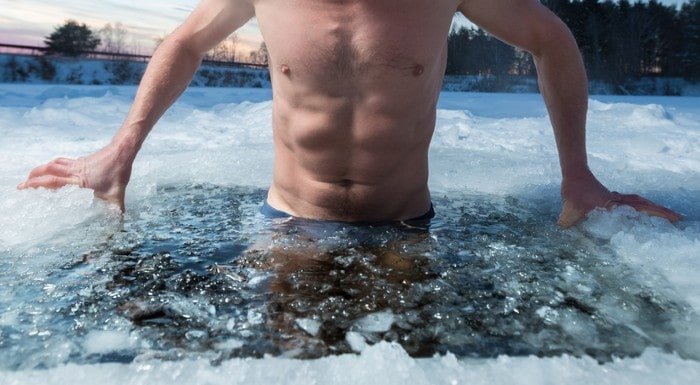When it comes to pushing the limits of human athleticism, or just trying to set a new PB, athletes have been known to embrace various unconventional methods and therapies. One such practice that has gained significant attention in recent years is cold plunging, also known as cold water immersion or cryotherapy. While the idea of immersing oneself in frigid water may seem daunting, Andrew Huberman (aka the Huberman Lab Podcast host) explains here why the athletic benefits of cold plunging are worth the initial shock. Let's dive into why athletes are taking the plunge and how it can boost their performance.
Enhanced Recovery:
Athletes often face muscle soreness and inflammation due to intense workouts. Cold plunging, particularly after a strenuous session, can help reduce muscle soreness and inflammation. The cold water constricts blood vessels, limiting the flow of blood to the muscles. When you exit the cold water, blood rushes back to the muscles, carrying with it fresh oxygen and nutrients. This process, known as vasodilation, aids in quicker muscle recovery.
Improved Circulation:
Cold plunging also has a positive impact on overall circulation. As the body adapts to the cold water, the heart rate increases, and blood vessels constrict and expand. This process acts as a cardiovascular workout, improving heart health and enhancing circulation throughout the body. Improved circulation can benefit an athlete by delivering more oxygen to working muscles, thereby increasing endurance.
Mental Toughness:
Cold water immersion is not just about the physical benefits; it's also about mental fortitude. Stepping into icy water requires mental strength and the ability to control one's reactions. Athletes who regularly engage in cold plunging often report improved mental resilience, which can be a game-changer when facing challenging situations during competitions.
Reduced Muscle Fatigue:
Exposure to cold water can also help reduce the build-up of lactic acid in muscles, a major contributor to muscle fatigue. By mitigating this fatigue, athletes can maintain their peak performance for longer durations.
Weight Management:
Cold plunging can stimulate the body to burn calories in an effort to stay warm. Regular cold exposure, along with a balanced diet and exercise routine, can aid in weight management and the maintenance of an athlete's ideal body composition.
Improved Sleep Quality:
Quality sleep is essential for recovery and athletic performance. Cold plunging before bedtime has been shown to improve sleep quality. The drop in body temperature after cold exposure can induce a feeling of relaxation, making it easier for athletes to fall asleep and experience deep, restorative sleep.
Immune System Boost:
Frequent cold exposure can stimulate the production of white blood cells, strengthening the immune system. Athletes often have demanding training schedules, and a robust immune system is crucial to avoid illness that can derail their progress.
Injury Prevention:
By reducing inflammation and aiding in muscle recovery, cold plunging can also contribute to injury prevention. Healthy, well-recovered muscles are less prone to strain and injury.
So while cold plunging may not be for the faint of heart, its athletic benefits are becoming increasingly recognized and embraced by athletes across various disciplines. Whether you're a professional athlete or a weekend warrior, incorporating cold water immersion into your training regimen could be the edge you need to reach your peak performance and KRYN Contrast cold plunges are the ideal way to have your at home recovery machine. However, it's essential to approach cold plunging with caution, starting with short exposures and gradually increasing duration and intensity. Always consult with a healthcare professional before incorporating any new practices into your fitness routine. With the right approach, cold plunging can be a powerful tool in your athletic arsenal, helping you achieve your goals and surpass your limits.

